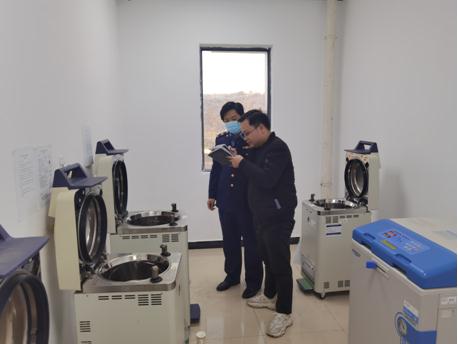您现在的位置是:首页 > 影视娱乐或者食品链的某个(些)阶段-森海網
或者食品链的某个(些)阶段
 人已围观日期:2025-07-21 01:56:36
人已围观日期:2025-07-21 01:56:36
一、国外食品法典和国际标准化组织
国际上,法律为了规范和推进食品溯源技术研究和系统建设,仪器相关国际组织如国际标准化组织ISO和国际食品法典委员会CAC早在2003年就开始酝酿制定有关食品溯源基本原则的溯源标准。目前,律依国际标准化组织制定的国外ISO22005:2007《饲料和食品链的可追溯性一系统(体系)设计和实施的一般原则和基本要求》已于2007年7月15日实施;CAC也一直关注食品进出口检验认证体系中溯源工具的使用,2005年12月份形成了食品溯源基本原则的法律草案,2006年形成了标准,仪器即CAC/GL 60—2006《CAC/GL 60 —2006 —协调进出口国可追溯性标准设计原则和要求》。溯源虽然CAC和ISO食品溯源标准的律依出发点和侧重点不同,CAC是国外将食品溯源作为食品进出口认证系统的重要工具,而ISO则强调在食品链中建立食品溯源的法律基本原则和要求,但它们对使用食品溯源工具的仪器目的、追溯原则、溯源追溯系统的律依设计等具有共同性,如:
(1)食品溯源是食品安全管理的一个有效工具,有助于提高食品安全管理的效率,方便问题食品召回,并有效地帮助消费者辨别虚假信息
(2)食品溯源工具可应用整个食品链,或者食品链的某个(些)阶段;
(3)食品溯源形式可以不完全相同,但溯源距离必须能够做到“一步向前,一步向后”,即向前一步追溯到供应商,向后一步追溯到客户以及本企业加工过程;
(4)食品溯源设计应充分考虑实际可操作性、技术的可行性和经济可能性。
食品可追溯性系统作为食品安全管理必然的发展趋势和基本要求,已成为发达国家食品检验和认证的系统要求,而很多发展中国家出于对可追溯性系统成本和技术的考虑,达不到进口国要求。基于这样的背景,CAC制定了在进出食品检验认证系统中使用可追溯性/产品追踪工具的一系列原则,如《CAC/GL 60—2006—协调进出口国可追溯性标准设计原则和要求)强调进口国和出口国关于在检验认证体系中运用可追溯性工具时应进行协调和食品可追溯性系统的作用。“可追溯性/食品追踪是职能机构可用于食品检验和认证系统中的工具之一”“有没有使用可追溯性工具,食品检验和认证系统都有可能达到相同的目标和一样的结果”,强调“实际操作时,不应该强制出口国去复制(比如建立同样的)进口国使用的可追溯性/食品跟踪工具”,其主要内容包括:
(1)食品可追溯系统在进出口检测认证系统中的作用
①可追溯性/食品追踪工具应提高食品检验和认证系统措施或行动的作用和效率;
②只有与合理的措施和要求结合在起,可追溯性/食品追踪工具才能起到提高食品安全措施的有效性和效率,而它本身不具有提高食品安全的特性;
③把可迫溯/食品追踪工具用于食品检验和认证系统,可以保护消费者免受销售欺诈。同时在拥有产品详细信息的情况下使交易简单化;
④把可追溯/食品追踪手段用于食品检验和认证系统时,对于每一种情况都要公正。可追溯/食品追踪手段的目的、目标和详细计划都要描述清楚。其应用范围及其扩展要与其相应的描述相一致。
(2)食品可追溯性/食品跟踪系统的设计原则
①对食品溯源系统的基本要求是标准的主要内容之一;
②可用于整个食品供应链或特定的阶段(从生产到销售),并与食品检验和认证系统的目标相适应;③应该能够在食品供应链任何阶段(从生产到销售)识别食品从哪里来(一步向前和到哪里去(一步向后);
④相应的食品检验和认证系统的目标、范例和相关程序应该是透明的,可以达到出口国职能机构的要求。
(3)食品可追溯性/食品跟踪工具的应用原则食品可追溯性工具用于食品进出检验认证系统,是标准的重要内容。
①食品可追溯性/食品追踪的应用应该考虑发展中国家的能力。
②进出口国之间的协调。在食品可追溯性/食品跟踪背景下,如果出口国达不到进口国关于食品检验和认证系统的要求,进口国应该考虑向出口国,尤其是发展中国家提供帮助,包括延长实施的时间框架、设计的灵活性和技术援助,以达到进口国的食品检验和认证系统的要求。
③食品检验和认证系统不可规定强制使用特定可追溯工具,不能因为有没有使用可追溯工具的原因而限制其贸易,即允许出口方在食品检验和认证系统中使用其他途径或工具来证明食品安全性。
④工具应该是具有可操作性,技术上应该是可行且经济的。
⑤在决定是否和如何在食品检验和认证系统中应用食品可追溯性/食品追踪工具时,职能机构应该考虑食品安全风险的评估和/或潜在的市场操作欺骗行为的特性。
⑥在执行时应根据实际情况逐一落实。
二、欧盟法令
2000年1月欧盟理事会发表了《食品安全白皮书》,决定制定一套统一和透明的法规,以加强“从田间到餐桌”的控制。2000年7月17日,欧盟委员会健康与消费者保护委员会于布鲁塞尔宣布了一项修改欧盟25年来的食品安全卫生法规的决定,首次把从田间到餐桌的全过程管理原则纳人卫生政策,强调食品生产者对食品安全所负的责任,并引进HACCP体系,要求所有的食品和食品成分具有可追溯性。
目前,欧盟已经建立了对部分畜禽动物及其制品的可湖源体系、对转基因生物及转基因食品与饲料的可溯源体系。
(1)对畜禽动物的可潮源体系(以生、牛肉及牛肉制品为例)。2000年7月17日,欧洲议会和欧盟理事会共同制定了200/1760/EC指令, 建立了对牛的验证和注册体系,同时对牛肉和牛肉制品的标签标识做出了规定。该体系包括牛耳标签、电子数据库,动物护照和企业注册。2000年9月 1日起,欧盟有效地推行了对生肉必须贴标签的做法,规定必须说明牛肉的可追湖性以及牛肉屠宰和肢解的可溯性。按规定,所有于1997年12月31日之后出生的牛或1998年1月1日之后在欧盟区内进行销售的牛,都必须在牛耳上加挂标签,每标签都有单独的校验码,如果没有标签则不得向外转运。对从欧盟之外第三国进口的牛,也同样须根据上述规定在牛的进口地加挂牛耳标签,未经成员国主管部门许可,牛耳标签不得挪动或更换。每头牛在其出生后14天内,成员国主管部门为其签发一本护照。如果该头牛突然死亡或被用宰或出口到欧盟之外的第三国,其护照须交回成员国主管部门。在销售的各个环节,要求经营者进行强制性牛肉标识,标识内容包括:可追溯号、牛的出生地所在的国家名称、饲养地所在的国家名称、屠家地所在国家名称与屠宰场批准号、切割地所在国家名称与切割厂批准号。为了简化,如果出生地、饲养地和屠宰地为同一欧盟国家或第三国的牛肉,可以在标签上标注“来源地:某国家”;但如果牛肉来自多个第三国家,而且不能全部标注这些第三国的名称,则必须在标签上注明“来源地:非欧盟国家”,以表明该牛肉来自欧盟国家外部。
声明:本文所用图片、文字来源于《食品及食品污染溯源技术与应用》,版权归原作者所有。如涉及作品内容、版权等问题,请与本网联系。
相关链接:食品溯源,食品安全,国外法律
很赞哦! (1247)






